Well, now this is a much talked about question – the topic of duprasi dinner.
There are many thoughts on what suits best – based on their natural habitat and what they would feed when they were first captive bred many moons ago – but we thought we would start our research with people who have actually had them as pets recently.
Not only those people who have had just the one so far – because what animals like to eat isn’t always what is good (or right) for them – but from breeders too – people who have had them for a while and have tried different things.
Best Fat-Tailed Gerbil Food:
What was assumed by the early keepers of doops was that they had a mainly insectivorous diet – based on their current habitat, their place on the genetic tree of life and their physiology (what they look like).
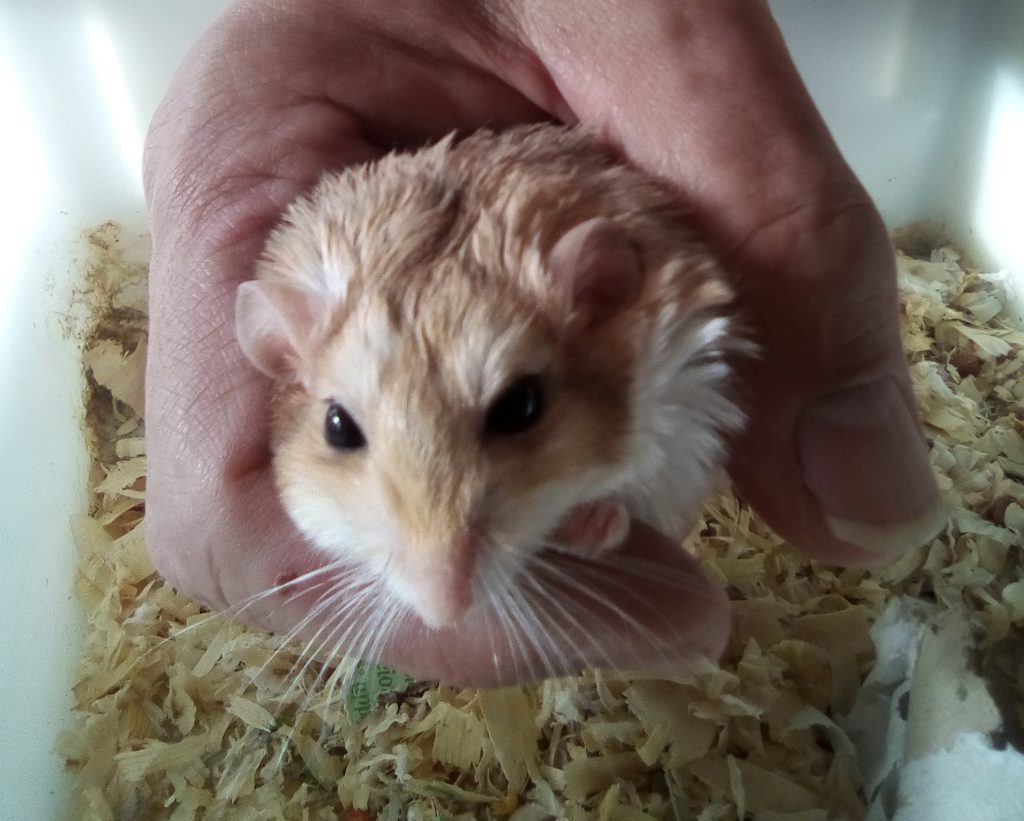
So, they were found on the desert edges – compacted dry areas of sand and stone with little vegetation and a fair bit of entomological interest (insects). They were in the main rodent group, closely allied with other hamster and gerbil groups; and they looked like other known insectivorous mammal groups (pointy noses).
So, hey presto we came up with the fact that they like a diet similar to our current Syrian hamsters and Mongolian gerbils. It was easy then; you can feed them a commercial hamster or gerbil food straight off the shelf.
Perfect.
Well, they can certainly do OK on such a food – but there is so much more to it.
What is a Doops Favourite Food?
As we said earlier – a favourite food doesn’t make it a good food. However, it seems as though ‘what to feed a duprasi?’ seems to be a bit of whatever you like at the moment.
Most people we have spoken to are sort of trying a few things themselves based on other pets they have had. So people with gerbils are sort of sticking with that main theme (we usually feed a fair bit of animal protein to our Mongolian gerbils anyway); people who had hamsters are sort of sticking to the very basics of pocket pet nutrition; and people with rats and mice are sort of going more along the omnivore line.
It seems a bit of a hit and miss process.
We currently offer a combination of several gerbil foods rotated over time (including Gerbil Nature, Johnsons Hamster and Gerbil Food and Harry Hamster) as well as a cat food, our shrimp cakes, canary seed, various dried grasses, sunflower hearts and locusts or either dried or fresh pupal mealworms.
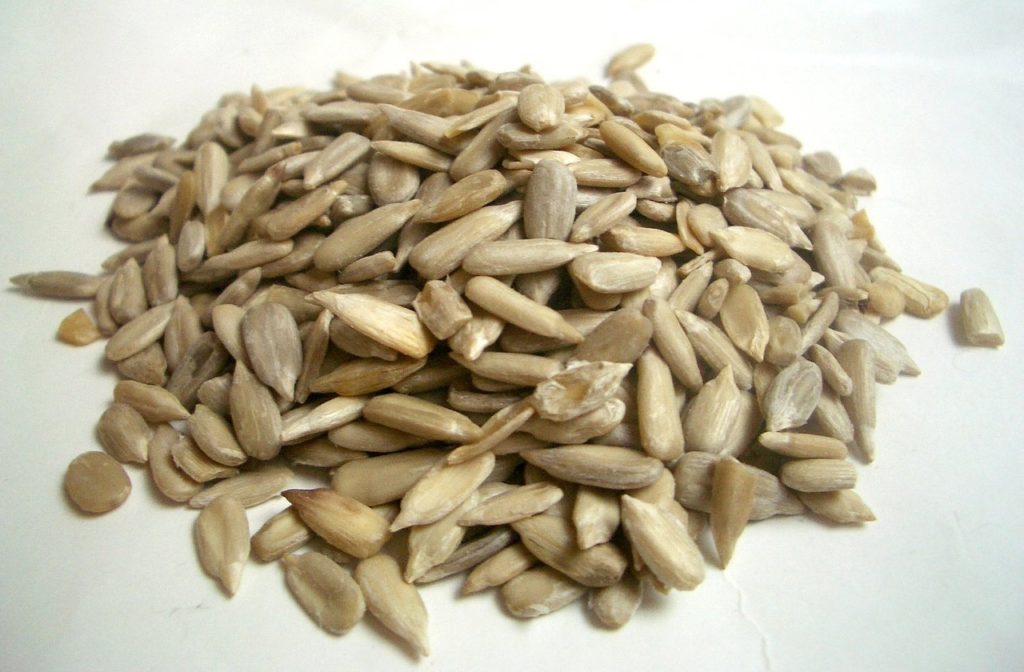
On top of that we offer some fresh things including brocolli, kale (huge favourite), mini sweetcorn, cucumber, spinach, berries, raisins, greens and various fruits. Only a bit at a time and not every day.
As you can tell – we have absolutely no idea what the nutritional contents of our diet are – or indeed have we any way to work it out? But, we suppose, unless we keep them in laboratory conditions, we wouldn’t be able to do that anyway?
Does A Duprasis Behaviour Affect Their Diet?
Yes, of course it does.
Depending on the activity and lifestage of your duprasi – the food will do different things.
If they are a growing pup, a lactating mum or a relaxing dad – their diet will all have different effects on their body. As too will there be a huge difference between and active doop with a wheel, and one without; a doop in a boring or really empty enclosure and one in an incredibly and suitably-enriched enclosure; also one on a hot climate and one in a cooler climate.
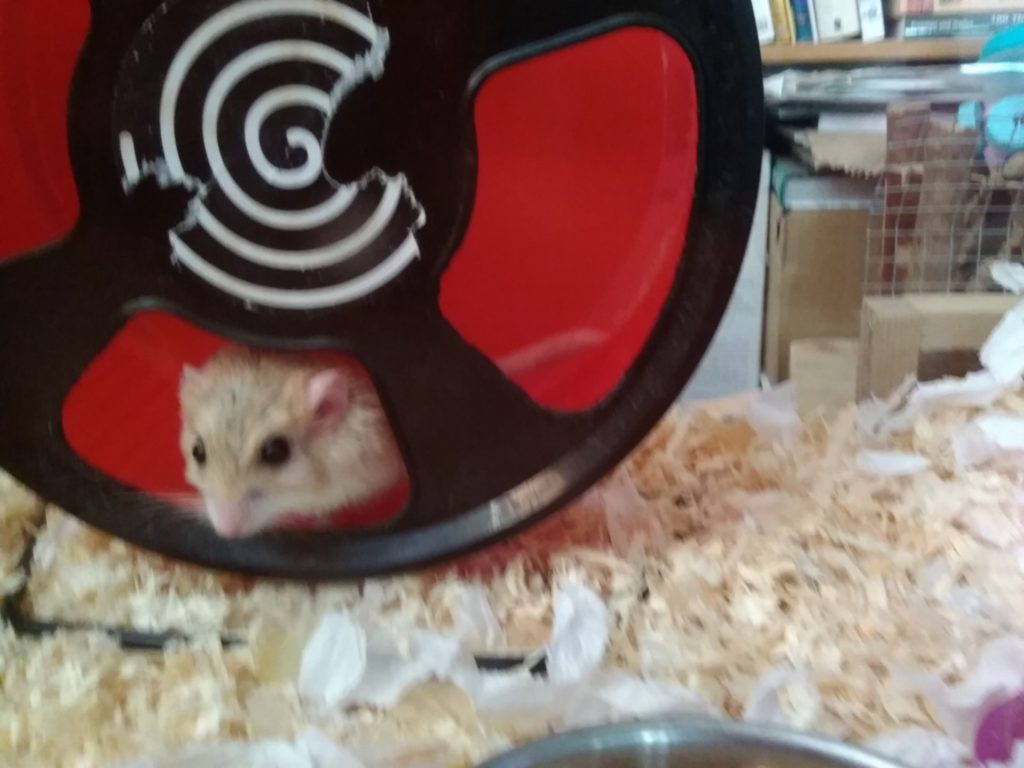
These are all things we don’t yet have long term results on. We hope people out there are working on it?
Doops are great food-movers too we have noticed, so the foods that go missing from where you put them in the enclosure aren’t necessaarily the foods that are being eaten first of course. And mine are avid diggers, so we keep finding food we thought they had eaten unearthed a few days later over the other side of the enclosure.
Give our female a Rosewood Naturals treat stick, and she will drag it to her lair and strip it off overnight, leaving the poor lonely bare stick all by itself. Abandoned.
Foods we have actually seen my doops eating on arrival are few and far between. The only ones so far that we have witnessed being eaten in situ are dried mealworms, curly kale and sweetcorn.
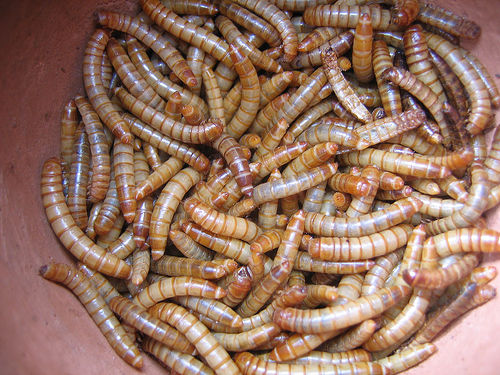
Can Duprasi Eat Mealworms?
Duprasi LOVE dried mealworms – that is true. Ours so far haven’t been too fussed by the live ones (which need to be fed in a shallow bowl otherwise they burrow out of site) so we stick to dried. However, they LOVE live waxworms…
Be careful though, as these are high in a lot of specific nutrients so don’t feed to the point where your doop is foregoing their normal other foods.
We know ours love a small locust too (and the fun of the chase) and they are very keen on the (Rosewood Naturals) shrimp biscuits we offer them – not live shrimps we know – but very high in animal protein for sure.
Perhaps they might be interested in fish food too? (Nope – well we tried the flakes and they weren’t interested).
Can Duprasi Eat Cat Or Dog Food?
We were told by the breeder we got some of our early doops from that they love to eat dried premium extruded cat food (the type where every piece of kibble looks the identical and where the ingredients say ‘dried chicken 24%’ as the first thing for example (as opposed to ‘meat and animal derivatives’ = not premium)). And they were right – they do love to eat the cat kibble.
You can use non-premium cat food, or premium dog food, of course, but they don’t have the same volume and quality of proteins as the premium cat food per bite, so we didn’t think they would be as effective in the diet?
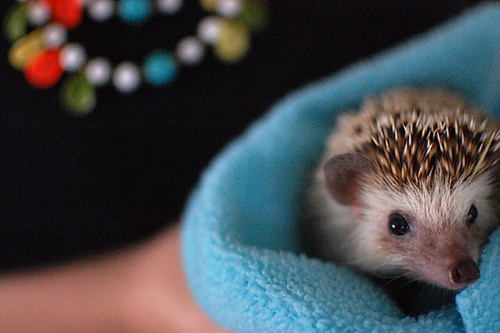

There are also other insectivore diets available these days including extruded and wet wild hedgehog and pygmy food, ferret food, skunk food, sugar glider and possom food to name a few.
These can all be used as alternatives if that is what you are feeding your other pets. No point buying 15 different things that all do sort of the same thing?
Well, not until there are anecdotal stories about the differences these can make to our doops long term that is.
Can Diet Affect A Duprasis Lifespan?
Well, now this is a really good question – and worthy of study.
It is well known that diet can affect lifespan in all animals. People swear – for example – by the fact that feeding rats the perfect diet (one they have trialled themselves) can extend the lifespan of rats by more than double.
They say that certain foods/treats given to rats by most people can actually cause reduced longevity and increased tumours.
Now, if this is true – them surely this has great potential to extend the lives of other small animals.
Chinchillas and degus have to stick to a strict ‘no sugar’ diet to live a decent lifespan in captivity – so should we learn a lesson from this with our other small animals?
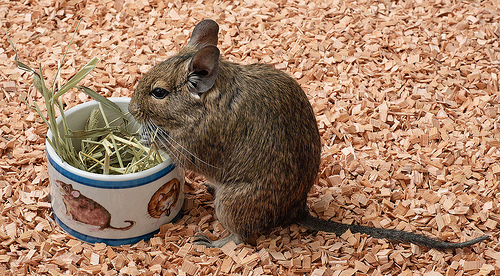

Can Duprasi Live A Really Long Time?
We originally heard that duprasi lived for up to 8 years in captivity – a fact that was something worth celebrating as so many other small pets live nowhere NEAR that long. However, we have since heard that this just isn’t really true.
Most doops are passing on before the 3 year mark – now is this due to our ad hoc dietary plans or was it never true in the first place?
We haven’t had them long enough ourselves to know the answer, so will keep researching this fact. We do wonder if working on a better diet plan for them really will be able to extend their life span?
It is possible that actually being in captivity has effects on them that outweigh their diet – maybe they don’t cope well in our recreated habitats?
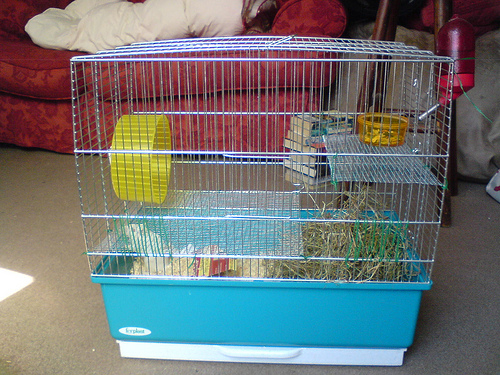
We are certainly going to be keeping a close eye on our little guys and keep notes on everything we try with them. So, any info from anyone with some longer term results – or someone starting out with a trial of any kind – do let us know.
We can start to make some revised duprasi care sheets and make their lives better if we can.
Hello, I’ve found reading your posts on keeping Duprasis really helpful. We’ve just got our 9 week old male and want to do the best we can by him diet wise. We’ll try him with some of your suggestions and see how he goes. (Btw I emailed you a few weeks ago for some substrate advice but didn’t get a response. Did you receive it?)
Kate
Hello Kate – and no – I can’t seem to find the email at all – but have been busy working over the holidays so I will be having a full catch up over the next week or so – that’s weird – so I can only apologise for that.
Have you found an answer yourself – or do post again on here and I can share anything I can.
What’s your little man called then – and I hope he has settled in well with you.
Do stay in touch,
RodentZone.